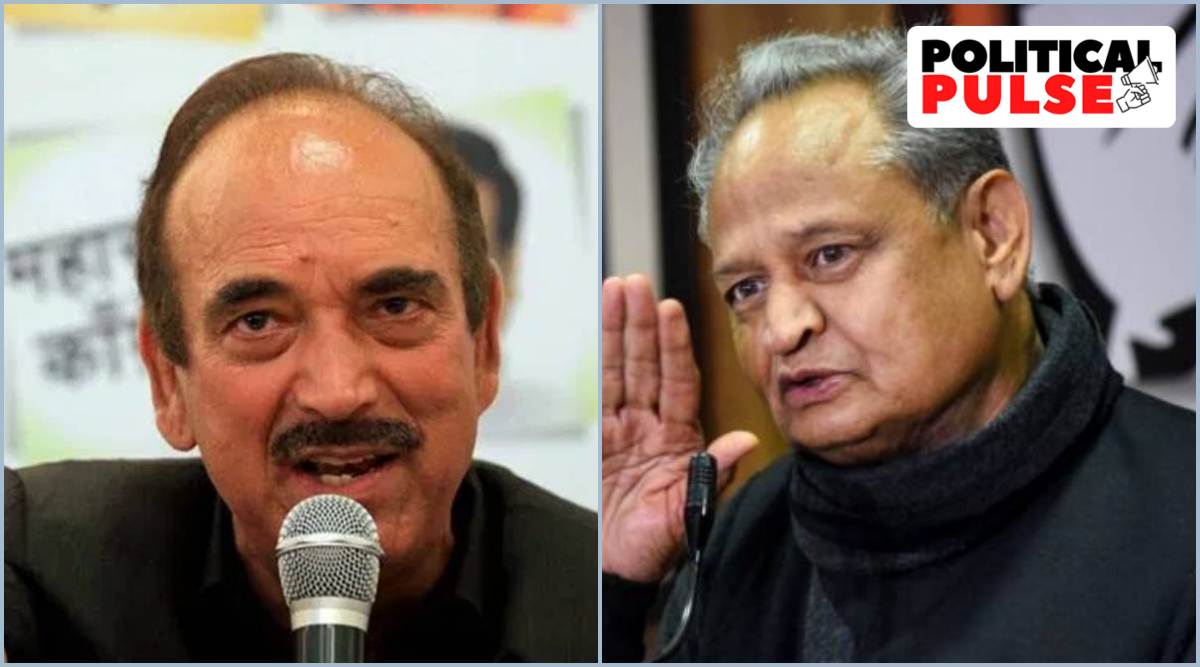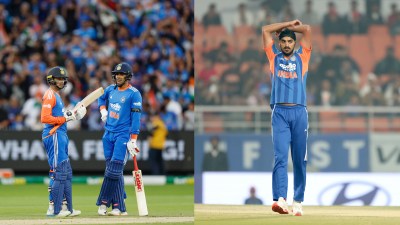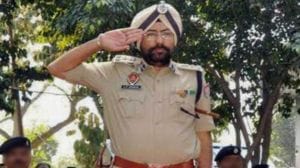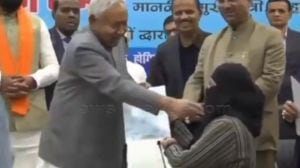Azad and Gehlot: Journey arcs linked by Sanjay and Rajiv Gandhis, split by Rahul
Both Azad and Gehlot have had many commonalities in their political trajectories, crucial to which was their close relationships with the Gandhis. While Azad’s relationship with the Gandhi family soured along the way, culminating in his resignation from the Congress Friday, Gehlot has continued to remain one of their staunchest loyalists.
 Ghulam Nabi Azad and Ashok Gehlot (Photos: PTI/File)
Ghulam Nabi Azad and Ashok Gehlot (Photos: PTI/File)Ghulam Nabi Azad’s “inexperienced sycophants” charge against Rahul Gandhi’s coterie drew the most vocal criticism from Rajasthan Chief Minister Ashok Gehlot, reportedly in the running for the Congress party’s president post, who said that Azad himself was once known as a “sycophant” of Sanjay Gandhi.
Both Azad and Gehlot have had many commonalities in their political trajectories, crucial to which was their close relationships with the Gandhis. While Azad’s relationship with the Gandhi family soured along the way, culminating in his resignation from the Congress Friday, Gehlot has continued to remain one of their staunchest loyalists.
Gehlot’s barb against Azad brings into focus the political journeys of the two leaders who started in the 1970s as student leaders, became deputy ministers and went on to assume the offices of the Union minister as well as the CM in their respective states.
In the 70s, Sanjay Gandhi, the younger brother of former PM Rajiv Gandhi, was seen as the political heir to their mother, the ex-PM Indira Gandhi. Rajiv had not entered the political arena yet and Sanjay was trying to rejuvenate the Congress after its debacle in the 1977 Lok Sabha elections.
Azad, who was reportedly spotted by Sanjay in the mid-70s, went on to become a part of his close circle along with other youth leaders like Ambika Soni and Kamal Nath. He served as the president of the Jammu and Kashmir Youth Congress Committee (1975-77) and as the general secretary of the All India Youth Congress (1977-80). Such was their closeness that Sanjay even took Indira to attend Azad’s wedding in Kashmir in 1980.
The same year, under Sanjay’s patronage, Azad became the national president of the Indian Youth Congress and was also elected to the Lok Sabha from the Washim parliamentary constituency in Maharashtra. After winning 353 seats in the 1980 Lok Sabha polls, the Indira-led Congress stormed back to power.
Gehlot also fared well in the Congress in the Sanjay Gandhi era. He was appointed the president of the party’s student wing NSUI’s Rajasthan unit in 1974. In 1980, he also became an MP, winning the Jodhpur seat. He had previously unsuccessfully contested the 1977 Rajasthan Assembly elections.
Sanjay Gandhi passed away in June 1980 in an air crash and then Rajiv entered the political arena.
Between 1980 and 1984, Azad and Gehlot served as deputy ministers at different times in the Congress governments in their respective states.
While Sanjay’s support and Rajiv’s backing was integral to Azad’s political growth, Gehlot enjoyed Rajiv’s trust which was manifested when he was picked by the then PM and Congress chief Rajiv as the Rajasthan Congress president at the age of 34 — the state’s youngest Congress chief — with the claims of several stalwarts to the post ignored.
After his two stints as a Lok Sabha MP from Washim, Azad went on to become a Rajya Sabha MP and Union minister with multiple portfolios over the years. He became Jammu and Kashmir (J&K)’s CM in November 2005, a post he held till July 2008.
Unlike Azad who spent most of his career in Delhi handling key responsibilities at the national level in the Congress governments or the party or both, Rajasthan, which has traditionally seen a bipolar contest between the Congress and the BJP, essentially remained the centre-stage for Gehlot’s innings.
Gehlot was a Lok Sabha MP in 1998, the year he got the CM post for the first time at the age of 47. Senior Congress leader Parasram Maderna was then projected as the CM but Gehlot was the Gandhi family’s choice for the job.
Subsequently, Gehlot went on to become the CM two more times so far (2008 to 2013 and 2018 to present), and his close relationship with the Gandhi family is considered to have always helped him in circumventing several internal barriers within the state Congress.
In recent years, a sharp contrast can be marked in the conduct of Gehlot and Azad. While Gehlot has shown unwavering loyalty to Rahul’s leadership and has consistently maintained that only the Gandhi family can lead the Congress, Azad, who served as the Leader of the Opposition in the Rajya Sabha between 2014 and 2021, became a part of the G-23 group of dissident Congress leaders, who wanted drastic changes in the party organisation. He resigned from the Congress after mounting a no-holds-barred attack on Rahul, charging that the latter had “demolished” the party’s “consultative mechanism” and let a “new coterie” of “inexperienced sycophants” run the party.
- 01
- 02
- 03
- 04
- 05































